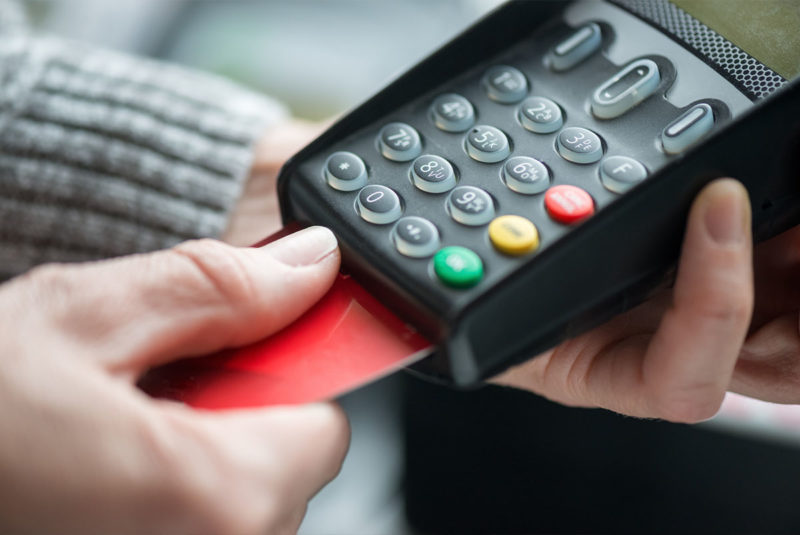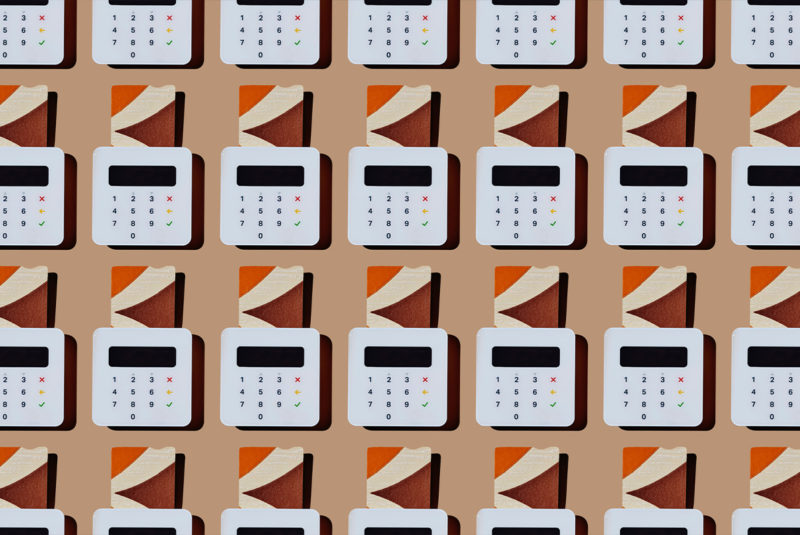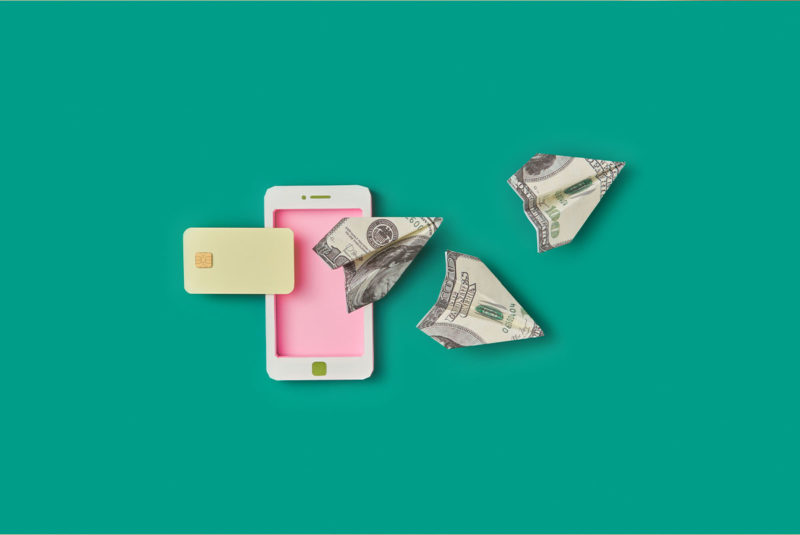Freelancing can be tough. Being self-employed, you’re all on your own. And not only do you need to find each new gig yourself, but you also need strong self-management skills to get the work done.
The last things you need are financial headaches or missed opportunities that could cost time and money. Fortunately, the right credit card can help you do all of the following and more:
- Separate business from personal spending
- Deal with unexpected costs
- Make budgeting easier
- Build business credit (if that’s what you want to do)
If you have repeated costs every month, putting them on a credit card could earn you rewards and using benefits rather than just seeing the money disappear from your bank account.
You don’t need an official small business credit card for this, you can put your business expenses on personal cards too as long as it fits your business spending. Many freelancers and small business owners can benefit from a combination of business and personal credit cards.
What Are the Best Credit Cards for Freelancers?
There are as many types of freelancers as there are stars in the Universe, and there’s no one-size-fits-all credit card.
Our favorite cards for freelancers include:
- The Blue Business® Plus Credit Card from American Express: If you want flat-rate rewards
- Bank of America® Business Advantage Customized Cash Rewards Credit Card: If you have varied business spending
- Capital One SavorOne Rewards Credit Card: If you spend a lot of time working in cafes
- Blue Cash Preferred® Card from American Express: If you spend a lot of time on the road
- Ink Business Cash® Credit Card: If you spend a lot on office supplies and internet/phone services
- Ink Business Preferred® Credit Card: If you’re looking for an excellent travel rewards card
Although we’ll focus mostly on business cards in this post, don’t limit yourself to them. Think about cards that would fit your lifestyle. What do you buy often, and where do you spend your time? You won’t always need excellent credit to qualify for excellent credit cards.
Road warriors, for example (like Uber/Lyft drivers or business travelers), may get a ton of value from a personal gas credit card or travel credit card. Although some travel rewards cards have both business and personal versions (like The Platinum Card® from American Express and The Business Platinum Card® from American Express), there are other great options you’ll only find by looking through personal cards (like Chase Sapphire Reserve®).
If you love to work in cafes, downing overpriced coffee and sometimes resisting the pastries, a credit card with restaurant rewards could make you feel 4% better about these, ahem, necessary business expenses. You’ll find some cards offering 4% back or more on dining (plus equally high rates on other business essentials) below.
Top 6 Credit Cards for Freelancers
Best for: Flat-Rate Rewards
The Blue Business® Plus Credit Card from American Express
The Blue Business® Plus Credit Card from American Express could be your go-to option for any purchases that don’t fit into the bonus categories of your other cards. Although there’s a spending limit, it’s pretty high and most freelancers probably won’t have to worry about hitting it.
2X points on any random purchase is pretty good. And since this card allows point transfers to partner airlines and hotels, you could get a return of 4% or more on your spending (with good transfer deals).
Best for: Varied Business Spending
Bank of America® Business Advantage Customized Cash Rewards Credit Card
If you make different types of purchases from month to month, you’ll need a credit card that can handle that. The Bank of America® Business Advantage Customized Cash Rewards Credit Card is one of the best business credit cards for freelancers with diverse spending habits, with a flexible 3% cash back category featuring six options you can choose from each month.
Best for: Working in Cafes
Capital One SavorOne Rewards Credit Card
No need to pay full price for coffee (or anything else at a restaurant). You have a few good options for restaurant purchases, ranging from no annual fee to a fairly high fee.
The Capital One SavorOne Rewards Credit Card is our top pick thanks to its high reward rate and no annual fee. If you want a little more and don’t mind an annual fee, check out the Capital One Savor Rewards Credit Card with a similar offer yet higher rewards.
Best for: Long-Distance Driving
Blue Cash Preferred® Card from American Express
Uber and Lyft drivers end up spending a lot of money taking care of their cars, and that includes buying quite a bit of gas every month. If you’re not getting some kind of discount on that fuel, you’re missing out.
The Blue Cash Preferred® Card from American Express can put a dent in all that spending, with an easy 3% back on gas. If you’re spending $150 to $500 per month on gas, that would save you $54 to $180 per year. It’s not a ton of money, but it should help you pay for some of those inevitable car repairs. Most cards without annual fees have lower rates on gas; by paying an annual fee, you’ll also get a top-notch rate for groceries and streaming.
Best for: Office Supplies/Internet Expenses
Ink Business Cash® Credit Card
If you’re like many freelancers, you’ve crafted some version of a home office to create a more productive work environment. The Ink Business Cash® Credit Card provides a simple way to get rewards for office supplies and internet/phone services, and the intro bonus could pay for that new monitor or chair you’ve had your eye on.
When you visit MoneyTips, we want you to know that you can trust what’s in front of you. We are an authoritative source of accurate and relevant financial guidance. When MoneyTips content contains a link to partner or sponsor affiliated content, we’ll clearly indicate where that happens. Any opinions, analyses, reviews or recommendations expressed in our content are of the author alone, and have not been reviewed, approved or otherwise endorsed by the advertiser.
We make every effort to provide up-to-date information; however, we do not guarantee the accuracy of the information presented. Consumers should verify terms and conditions with the institution providing the products. Some articles may contain sponsored content, content about affiliated entities or content about clients in the network. While reasonable efforts are made to maintain accurate information, the information is presented without warranty.
Best for: General Travel
Ink Business Preferred® Credit Card
Who doesn’t like points? The Ink Business Preferred® Credit Card will provide a ton of them, with the biggest intro bonus currently available on any Chase Ultimate Rewards card (bigger even than the $550 bonus offered by Chase Sapphire Reserve®). You’ll earn points on travel at a competitive rate, as well as a few other bonus categories that should prove useful to certain freelancers.
Why Should Freelancers Use Credit Cards?
Credit cards are useful tools for people in their daily lives, and for businesses as well – so freelancers, who live somewhere within the spectrum of self-employment, can take advantage of cards designed for each group.
Some key benefits of using credit cards:
- Earn rewards: A little bit of cash back or a few points per dollar here and there can add up to a lot over time. Pair the right rewards card with your business spending, and you could see returns of 5%, 10% or even more with certain card setups.
- Split personal and business spending: To easily separate your finances, designate some cards for personal spending and other cards for business spending. Pay the former from your personal bank account, and the latter from your business bank account (if you have one).
- Budget and analyze spending: You need a budget as a freelancer. Credit cards will itemize your purchases, giving you a clear perspective on what you’re buying and how much you’re spending. This makes it simple to track your cash flow over time, and you can check in as often as you like to make sure you’re staying on budget.
- Help with taxes: Separating and itemizing your business expenses will make tax season a (relative) breeze. Keep all your expenses on certain cards to speed up the collecting and sorting of all that info (especially useful if you’re paying a tax accountant by the hour).
- Provide some startup funds: Maybe you want to buy a standing desk or get your car detailed so it looks nice for your first rideshare job. A credit card can help you pay for these over time, but you should look for a card with a 0% intro rate on purchases or balance transfers to avoid paying interest.
- Deal with unexpected costs: Surprise expenses will happen (if they haven’t yet, just wait). A credit card can give you some time to come up with the money, or let you pay off the debt for a year or more (again, find a card with a 0% intro rate on purchases or balance transfers).
- Build business credit: Building business credit isn’t as simple as getting a business credit card or declaring a personal card to be used for business purposes. But having a business card can help if boosting your business creditworthiness is, in fact, a goal.
- Save when purchasing in foreign currency: If you travel abroad or make purchases in foreign currency for work, you may find yourself dealing with exchange and foreign transaction fees. You can avoid them with a card without foreign transaction fees.
Business or Personal?
Smart freelancers seek out every advantage, whether they’re spending for their business, planning for tax day or getting the work done.
The bottom line? A business credit card isn’t required but you may find it useful. As far as the IRS is concerned, any credit card can be designated solely for business purchases.
You should know that business cards aren’t protected by the CARD (Credit Card Accountability Responsibility and Disclosure) Act, which prevents credit card companies from raising interest rates in certain situations and provides some other consumer protections.
So, many solopreneurs prefer to stick with personal cards, also known as consumer cards. Both types of cards are secured with the applicant’s personal credit, and business cards don’t necessarily create or build business credit (but they can help accomplish that).
Overall, however, you shouldn’t be scared away by business cards. Plenty of people choose them over consumer cards for their different rewards programs and benefits and, most of the time, it works out fine. As long as you use credit cards responsibly and maintain good financial habits in general, you’re unlikely to have any problems.
Should I get a personal card or a business card?
Some reasons to consider business cards instead of (or in addition to) personal cards include:
- Easier qualification: Maybe you didn’t realize it, but as a freelancer, you should easily qualify for business cards.
- Business-focused rewards: Compared to personal cards, business cards tend to have bonus categories that suit businesses, just as you’d expect. Reward categories often include office supplies, phone and internet services, shipping, advertising and travel.
- Business-focused benefits: You can find simple benefits like management tools to track and analyze spending, along with more valuable perks like credits with popular business services. Protection benefits, like purchase protection or trip delay insurance, may come with higher reimbursement limits than personal cards as well.
- Higher credit limits: Business credit cards usually come with higher credit limits than personal cards, so they’re more convenient if you have a lot of spending to do each month.
- Personal finances/business spending tracking: If you have a bunch of credit cards, you may find it easiest to keep your personal expenses on consumer cards and all your business spending on business cards (but most freelancers will probably be better off with a mix of consumer and business cards).
- Control employee spending: If you have any employees or provide payment methods for anyone else you work with, a business card can let you set limits on authorized user/employee cards to prevent overspending.
- No or low impact on personal credit history (if used responsibly): Most credit card issuers won’t report business cards to the consumer credit bureaus as long as they’re paid on time, so they won’t show up on your personal credit reports (Capital One and Discover are exceptions). This could be a good thing if you’re carrying a balance or reporting a high balance each month as it won’t affect your credit utilization ratio.
So don’t limit yourself to just business or personal credit cards – find a card or two that complement your business spending and the life you want to live as a freelancer.
Keep your options open, and commit to using credit cards responsibly. Ideally, that means paying off your full statement balance each month to avoid interest. At its core, that means paying your bills on time, every time. This will help you get the most out of your cards without accruing expensive debt.



